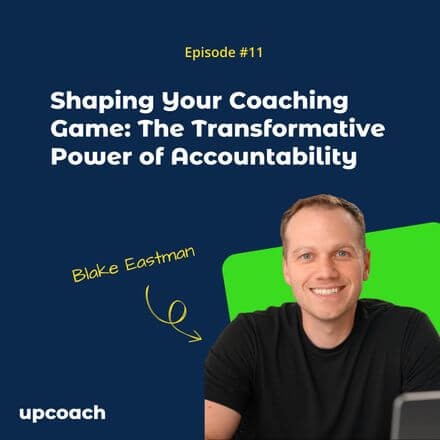Join us on an enlightening journey as we sit down with Blake Eastman, a powerhouse in nonverbal research and behavioral science who has spent over a decade as a top poker coach. Eastman’s unique insights into the complexities of social skills are shaped by his experience conducting the world’s largest study on poker players, an exploration that has given him a distinctive perspective on coaching in today’s multifaceted society. His transition from poker to nonverbal research wasn’t a struggle but rather an evolution that we delve into in this episode.
A personal revelation reshaped Blake’s coaching style – accountability. As coaches, we need to step up and lead by example, practicing what we preach and holding ourselves accountable for our actions. This episode also explores the crucial role of accountability coaches, these unsung heroes who can drive us forward toward achieving our goals.
Blake continues the conversation by respectfully underscoring the importance of learning from our failures and how this shapes our ability to be accountable, a humbling and empowering experience.
Episode quotes
On making the jump from poker to nonverbal group
I’ve viewed them as separate, but they’re very overlapped skill sets. The truth is I learned so much from coaching poker players at scale that I wouldn’t be able to do the things that I’m doing now without all the technology and methodologies and everything that we develop for poker players. I really don’t think the whole jump is that hard at all. I think it’s something that gets in a lot of people’s heads about, “Oh, I coach this kind of person, but I can’t coach that kind of person.” The reality is, to some extent, there’s truth in that, but the transition is a lot easier than people think.
The one thing that made a really big impact on his ability to get clients results
First, it’s a mindset shift, and then it’s tactics and application of that. So, I think the biggest shift came from me when I started to see that I’m responsible to my clients, not only on the 45-minute call or the 30-minute check-in but in their life between those moments.
On adapting your framework to fit your clients’ routines
I think a lot of coaches become lazy with their framework. They just do the same thing, and it’s like, no, you got to figure out how do you produce results. Like, you come up with a methodology and like a four-part framework or seven phases and blah, blah, blah, and the reality is not everybody fits into the freaking seven-phase thing that you came up with, and not every culture is the same, and not every person is the same, and you want to have structure but I think part of the aspect of being a world-class coach or let’s say, top .01%, is to be able to read the dynamic and quickly adapt your framework and do what’s going to work for them. The ability to be dynamic outside of your rigid framework is what allows you to get to the top, in my opinion.
